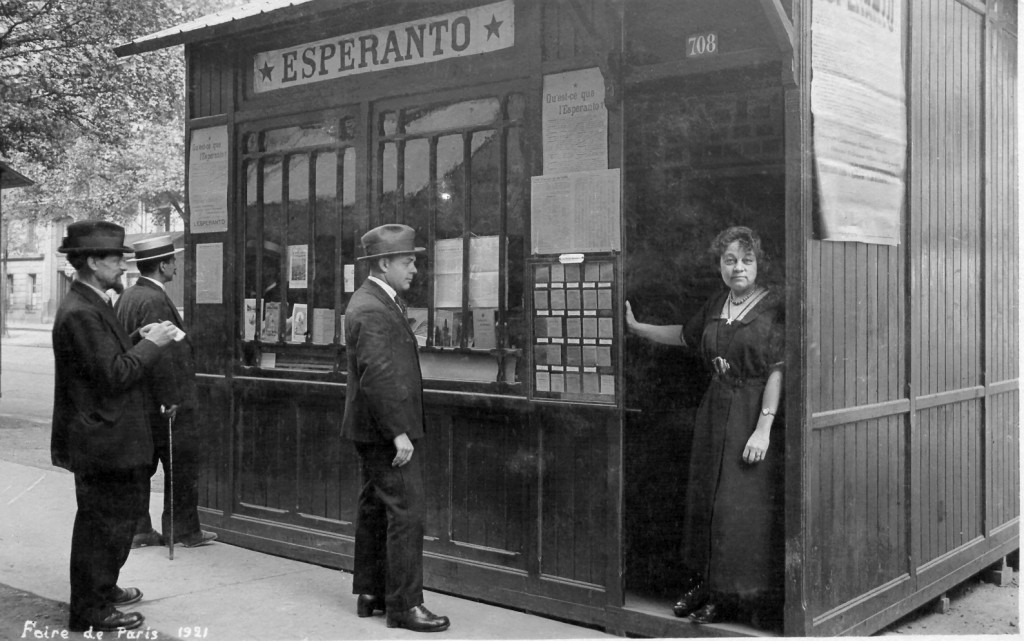Esperanto and the Universal Language
Communication is one way in which we put into practice the virtues we acquire and contribute towards a united and peaceful world. In A Traveller’s Narrative, ‘Abdu’l-Bahá said:
O friends, consort with all the people of the world with joy and fragrance. If there be to you a word or essence whereof others than you are devoid, communicate it and show it forth in the language of affection and kindness: if it be received and be effective the object is attained, and if not leave it to him, and with regard to him deal not harshly but pray. The language of kindness is the lodestone of hearts and the food of the soul; it stands in the relation of ideas to words, and is as an horizon for the shining of the Sun of Wisdom and Knowledge[i].
During His travels in the West, the Master also emphasised over and over again His Father’s injunction that one universal language is needed to “eliminate misunderstandings from among mankind[ii].” The language of kindness therefore does not suffice as misunderstandings naturally occur between people who practice kindness and love. We need spoken and written language to function in our daily individual and collective interactions as we are not mind-readers. As the Master explained, “The function of language is to convey the thought and purpose of one to another[iii].”
One universal language that already existed at the time of Bahá’u’lláh and ‘Abdu’l-Bahá was Esperanto and several Westerners asked the Master whether this would be the universal language of the future. In one of His responses ‘Abdu’l-Bahá gave very clear and practical guidelines regarding the nature of an auxiliary international tongue and empathically emphasised the way in which a new language should be chosen:
A friend enquired concerning Bahá’u’lláh’s prophecy in the Words of Paradise, that a universal language would be formed, and desired to know if Esperanto would be the language chosen.
“The love and effort put into Esperanto will not be lost,” he [sic] answered, “but no one person can construct a Universal Language. It must be made by a Council representing all countries, and must contain words from different languages. It will be governed by the simplest rules, and there will be no exceptions; neither will there be gender, nor extra and silent letters. Everything indicated will have but one name. In Arabic there are hundreds of names for the camel! In the schools of each nation the mother tongue will be taught, as well as the revised Universal Language[iv].”
In a message to Esperantists, the Master beautifully brought together the reasons for the need for this Universal Language:
Today the greatest need of the world of humanity is discontinuance of the existing misunderstandings among nations. This can be accomplished through the unity of language. Unless the unity of languages is realized, the Most Great Peace and the oneness of the human world cannot be effectively organized and established because the function of language is to portray the mysteries and secrets of human hearts. The heart is like a box, and language is the key. Only by using the key can we open the box and observe the gems it contains…[v].
References
[i] Abdu’l-Bahá, A Traveller’s Narrative, p.43.
[ii] Abdu’l-Bahá, Selections from the Writings of Abdu’l-Bahá, p. 301. See also Abdu’l-Bahá, Paris Talks, pp.155-7.
[iii] Abdu’l-Bahá, The Promulgation of Universal Peace, p.232. See also Abdu’l-Bahá, Abdu’l-Bahá in London, pp. 59-61.
[iv] Abdu’l-Bahá, Abdu’l-Bahá in London, p.94. See also Mahmud’s Diary, Wednesday July 24, 1912, pp. 179-180. http://bahai-library.com/books/mahmud/index.html#section122
[v] Abdu’l-Bahá, Message to Esperantists, 25 April 1912, The Promulgation of Universal Peace, pp.60-1.
Photo from www.blogs.transparent.com



Very interesting. Thank you! Do you know what the origin of Esperanto is?